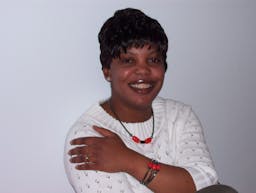ENSURING PREVENTION STRATEGIES WORK FOR WOMEN
Jan 21, 2015
Story
Project Africa is a non profit organization established in Kenya with an aim to empower women in rural Africa with skills and resources for enterprise and sustainable community development. By reaching out to rural women and girls who are vulnerable and at risk of contracting and/or spreading HIV/aids, we have initiated educational and training programs where women and girls can gain vocational skills, communication skills and basic literacy at the same time creating and capacity for communities to address social challenges including ill health.
Key questions of concern in our programs have stimulated a discourse aiming to address health issues of women who work as caregivers. Specifically, what are the strategies that could encourage income generation towards affordable health care by the marginalized groups including very poor women, older women, marginalized ethnic groups, commercial sex workers, HIV positive women, girls heading orphaned households and the adolecents? Two, what skills do they need as a preventive measure and substitute for risky sexual behaviours, domestic violence, early marriages, unplanned births and/or harmful traditional practises which often burden women with the dependency syndrome and deny them the power of choice.
This being especially important in communities with a high prevalence of HIV and AIDS, we have noted that in most rural families where women and girls are the prime breadwinners and caregivers their health concerns may not be a priority to the family. These concerns could include women's lack of access to healthcare and necessary medications, and lower likelihood of access to health care where a price is involved, be it indirectly through cost of travelling to the health centre or directly through medical bills. Norms restricting women's mobility or overburdening them with household work or food production often leaves their health needs unattended. Often women are treated with traditional medicines to avoid the costs and that way they remain discriminated against in access to modern clinic facilities. Not to mention the unpaid labour that women undergo for providing home based health care both to the infected and affected members of their families. They provide nutritional foods, care and support that is majorly unrewarded.
Such enormous contribution means that their participation to improving preventive strategies to health issues cannot be overlooked. As such, we endeavour to have any response to HIV/AIDS and other general health issues, to have women placed central in ill health prevention, care and treatment.
In Kenya, Project Africa programs are harnessing the potential of education and training and income generating initiatives in improving rural health. Our model of learning by doing and earning has opened avenues for women to earn income with reproductive health and general family health being a paramount household need that the women should spend their income in. We give training in basic literacy least for an illiterate rural women to understand the doctor’s prescription. We give training in communication skills in various health subjects that women are able to share with their communities and families through the use of different modern and traditional media. And thirdly, our vocational skills provide women the opportunity to earn income and provide quality health care for themselves and their children.
Challenges
We propose that rural communities should be assisted to develop and adopt a people centred approach that focuses on tackling the underlying causes of ill health by using the active participation of women as partners.




